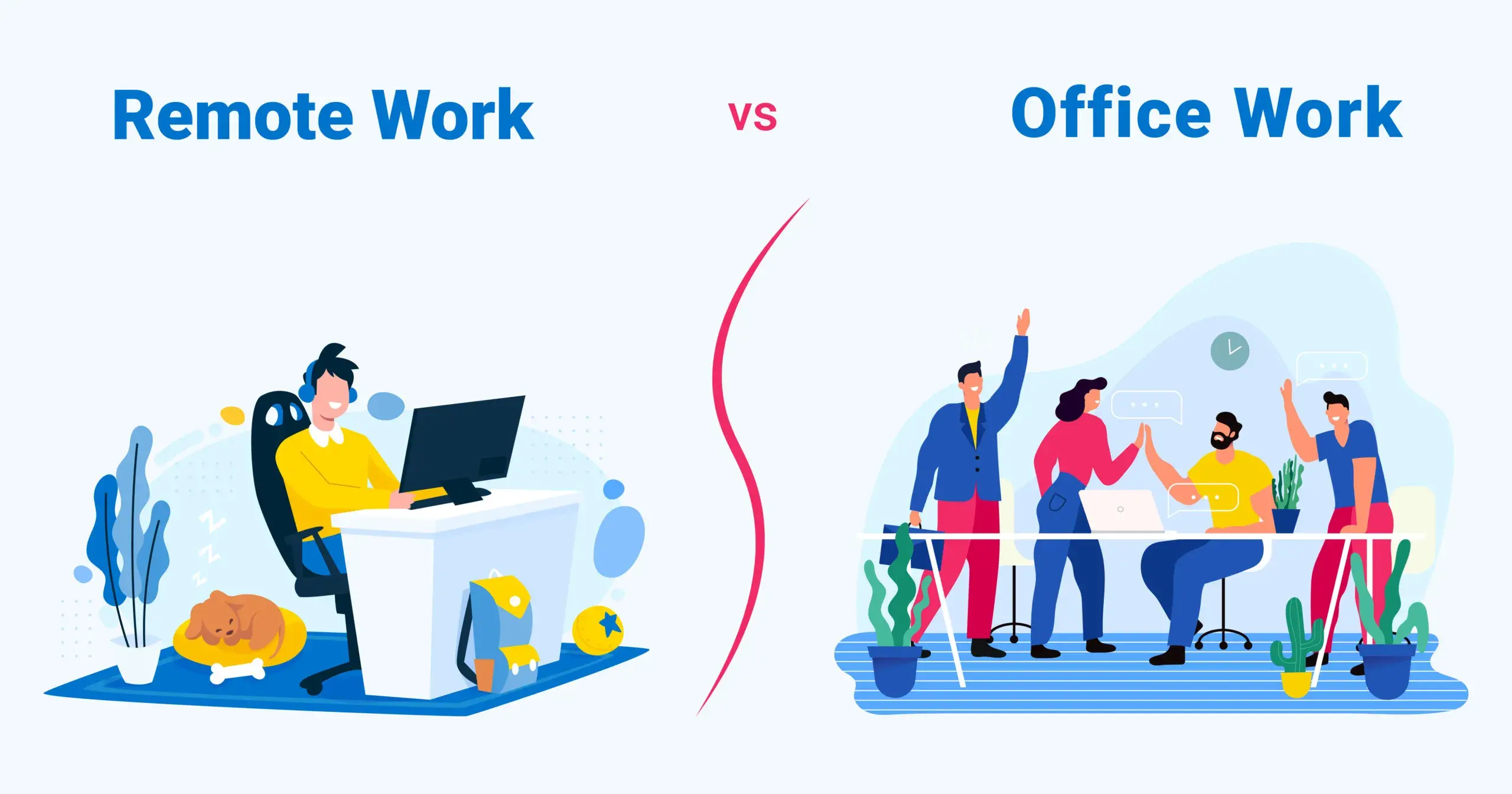Virtually unheard of a decade prior, and everyone’s talking about it today, fueled in popularity during the epidemic period is the term “Work from Home”. It refers to the practice of doing your work without going to the office; you could do it from home or anywhere else in the world.
Advantages of Remote Work versus Office Work
The truth is that both models have their positive and negative aspects. Let’s see some of them:
- It offers a wider range of possibilities when it comes to managing both time and space.
- Travel to the companies and the place where you live are no longer decisive.
- You can organize your schedules as you prefer and you can better reconcile your work and personal life.
- You reduce transportation costs and save time in traffic jams, transportation, etc.
- Less travel means less pollution.
- Fewer costs in facilities if you are a company.
- Satisfaction and productivity: increase if you are happy in your job and you are able to reconcile your work and personal life.
Disadvantages of Remote Work versus Office Work
- Social relations: Being in physical contact or in the company of people in our work environment can bring very good benefits for our mood, teamwork, and anxiety reduction.
- Work-life balance: Sometimes it is difficult to maintain a balance between work and personal life when home and office are the same space.
- Privacy: We must also keep in mind that the remote worker may have objections to privacy when he sees that his personal life inevitably intersects with the workday.
- Safety measures and occupational risk prevention: Who is responsible for injuries sustained while working from home, and can the same controls be exercised over safety measures at home as in the office? There may also be productivity issues.
- Computer security: Some companies require high levels of computer security that are more difficult to provide from home.
- Internal presence: However, the biggest drawback of remote working is the bias in the attitudes of executives, managers and entrepreneurs. There is evidence that employees who opt for a non-office way of working can be penalized,
- Closer teams with office work: Teamwork becomes much easier: face-to-face relationships make unity and the ability to resolve conflicts easier.
- Ethical implications: The company must carefully establish framework policies to manage remote work and ensure fairness. Clear expectations for remote workers will also be established.

https://unsplash.com/photos/HJgaV1qjHS0
Why is Remote Work Gaining Ground?
A recent survey suggests that executives now expect 1.3 days a week on average to work from home. This is a quarter more than they used to expect when they were polled on the subject in January.
Several factors are cited to explain why telecommuting is gaining a foothold in labour relations:
- Employees fear catching covid-19 and avoid crowded places.
- Workers’ bargaining power has increased given labour shortages.
- Remote work is becoming more efficient for companies.
- Production costs for companies have been reduced as less office space is taken up.
- People are enjoying more time with their families and reducing costs by saving on transportation expenses.
Several types of research have been conducted since last year on the remote work phenomenon. One of them found that when the company switched to telecommuting, it increased the average number of working hours, but saw a slight drop in production. According to the researchers, the decline in productivity was partly due to “higher communication and coordination costs.”
Is Working from Home More or Less Productive?

https://unsplash.com/photos/Oalh2MojUuk
Why remote workers might be more productive is still a puzzle to economists. Perhaps one explanation is that they concentrate better or more easily on tasks at home than in an office. They have less time for distractions (greetings, gossip, jokes).
Another reason is that commuting to work can be more tiring. Also, working with appropriate technological tools makes work more efficient. During the pandemic, companies had to make a significant investment in technology to keep up and compete.
Is Remote Work the Solution?
However, not everyone is confident that remote work is the solution. Because if it were, why do so many people want to keep doing their work away from home? Not all companies want to telecommute and not all jobs can be done from home.
Whether this will change over time is uncertain. Even if companies decide to increase telework positions, they will have to keep some of their physical work infrastructure active.
Conclusion
In this life, nothing is either black or white. We have an infinite number of intermediate colours and each one adjusts to the needs of the environment. Therefore, surely neither one is better than the other nor the other way around, and the real formula lies in knowing how to combine both according to your needs and those of your company, but what is clear is that this is here to stay and that we must change to adapt. And what are you going to do?
—
If your business would like assistance and guidance in setting-up remote working for your staff, get in touch with Sanmark. We’re using remote working within our company as well and have a lot to share.
